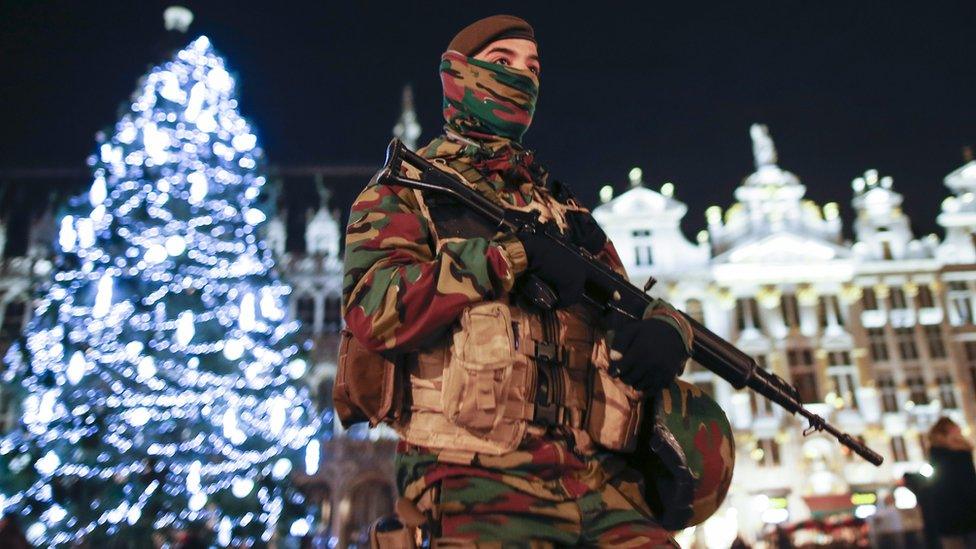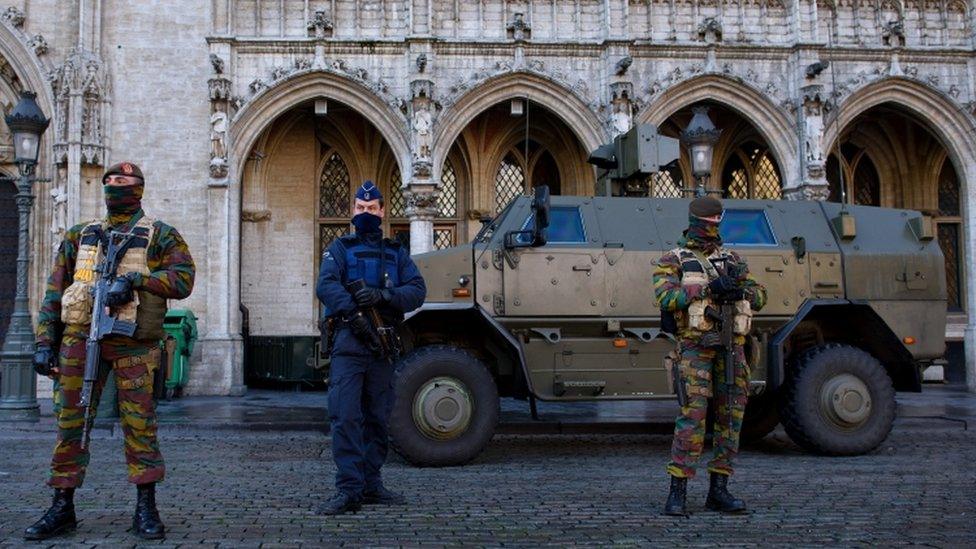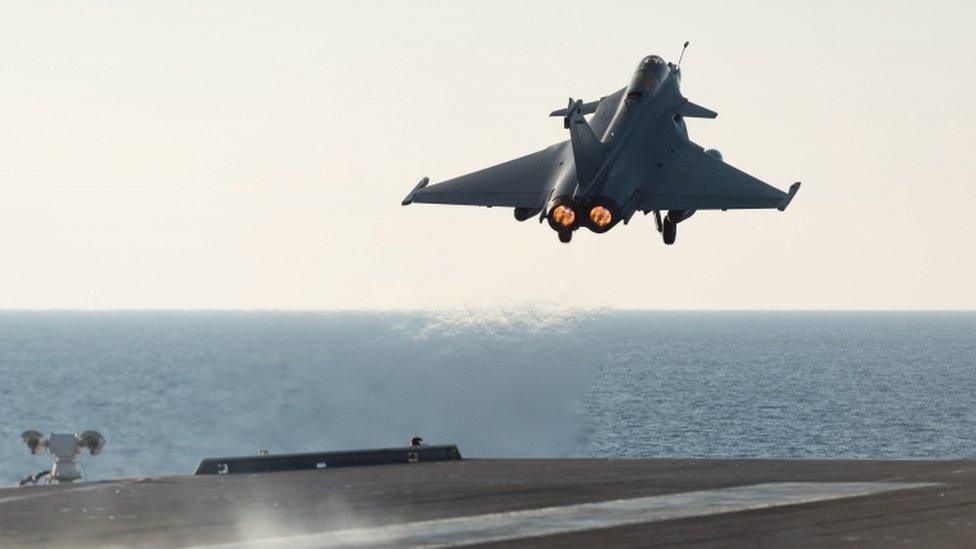Paris attacks: Belgium charges fourth suspect with role
- Published

Belgium's capital Brussels remains on the highest security alert
Belgian police have charged a fourth suspect with terrorism offences related to the deadly attacks on Paris, the federal prosecutor has said.
The unnamed man was one of 16 people arrested in raids on Sunday. The rest have been released without charge.
Belgian PM Charles Michel said he would maintain the highest security threat level in Brussels, warning of an imminent threat.
But authorities plan to reopen schools and the metro on Wednesday.
The co-ordinated assaults in Paris on 13 November - claimed by so-called Islamic State (IS) - left 130 people dead.
Belgian PM Charles Michel: "We ask our population to stay calm and alert"
A statement from the federal prosecutor's office said the man had been charged with "participating in activities of a terrorist group and with [a] terrorist attack".
Of a further five people arrested on Monday morning, two have been released, while "further enquiries" are under way regarding the others, the prosecutor said.
Mohammed Amri, 27, and Hamza Attou, 20, have already been charged with aiding Paris attacks suspect Salah Abdeslam, who remains at large. A third, unnamed suspect has also been charged.
In a separate development, French police said an object that appeared to be an explosives belt was found in a bin in the Paris suburb of Montrouge on Monday. The item is being examined.
Mobile phone data suggest that Salah Abdeslam - whose brother died in the attacks - was in that area late on the night of the attack.

Brussels under lockdown, by the BBC's Gavin Lee

Soldiers patrolled city landmarks
Today I walked through the Royal Gallery of St Hubert, the iconic, beautifully ornate shopping arcade in the heart of Brussels. I counted on one hand the number of shoppers.
Only one of the famous chocolatiers has opened, with armed soldiers guarding outside, and it has barely any customers.
Two Danish tourists select some delicate, pastel macarons, looking over their shoulders as I enter.
"We can admit we're scared," Delilah tells me, "We were told by the hotel manager not to come here, but we thought we'd take a chance. Buy presents for the family and leave quickly."
Eva, behind the counter, says her boss told her she could have the day off if she was afraid, but decided to come in.
"I feel I'd be letting myself down if I didn't come in today, even if no-one comes in to be served," she says.

Universities, schools, large stores, shopping centres and the metro system were closed in Brussels on Monday as the highest security alert remained in place for a third day.
Armed police patrolled the normally bustling streets of the capital.
Announcing that the state of alert would remain at level four for another week, Mr Michel stressed "we must all progressively get back to a normal life".
The rest of Belgium remains on alert level three, meaning an attack is seen as possible and credible.
France has stepped up security in schools, imposing a series of measures including compulsory safety drills and banning parking outside school premises.

France has carried out fresh strikes against IS from its aircraft carrier
Also on Monday, France carried out its first strikes against IS from its Charles de Gaulle aircraft carrier, newly deployed in the eastern Mediterranean.
French jets bombed IS targets in Iraq and Syria, including Raqqa, IS's key Syrian stronghold, the defence ministry said.


President Francois Hollande has vowed to intensify strikes against IS in Syria and Iraq in the wake of the attacks.
On Monday morning Mr Hollande and UK Prime Minister David Cameron paid their respects to the victims at a makeshift memorial in front of the Bataclan theatre venue.
Speaking after talks at the Elysee Palace, Mr Cameron said it was his "firm conviction" that the UK should join air strikes in Syria - but that the decision would be up to MPs.